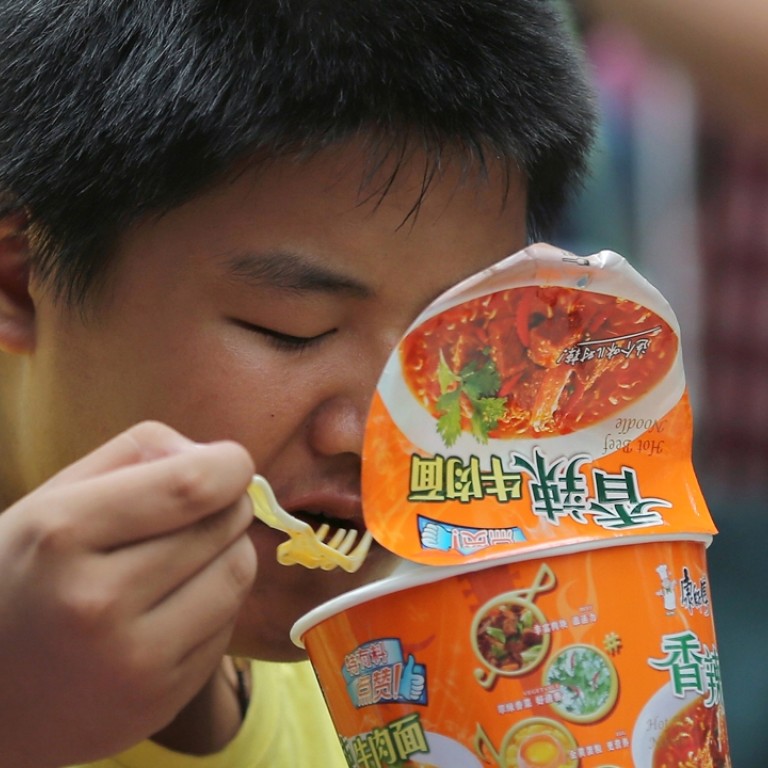
Ah, the joys of Chinese Lunar New Year train travel: smelly instant noodles, cheesy feet and noisy children
Ban imposed on sale of noodles on all mainland high-speed trains as millions start to travel home before Year of the Monkey starts on February 8
Instant pot noodles – the staple diet of millions of Chinese travellers – have been banned from being sold on the nation’s high-speed trains during the Chinese Lunar New Year because of complaints about the stink they create, mainland media reports.
However, the official move will not lead to fresher air on board: people will still be permitted to eat them on if they bring them onto trains themselves.

“It is not good for the air quality inside the trains and for passengers’ overall comfort.”
Food sold on mainland trains is widely regarded as expensive and of poor quality.
READ MORE: Cold wave across China puts mainlanders’ Lunar New Year travel plans on ice
Instant noodles, which are made by simply adding hot water, are a popular choice with many millions of mainland travellers because they are relatively cheap, easy to prepare and available in many different flavours.
Some netizens have joked about the strong whiff emanating from pot noodles as one of the three traditional experiences they associated with travelling over the new year, alongside the cheesy odour of smelly feet and noisy children.

“It’s fine for ordinary trains to sell instant noodles, but they shouldn’t be eaten on high-speed trains, where I found the smell nauseating,” one popular comment that attracted the support of more than 400 people on weibo, China’s version of Twitter.
“[The ban on selling them] makes sense to me,” another weibo user wrote. “Just like a meat-stuffed bun. [They] look good, but smell gross.”
However, the ban on instant noodles sales on high-speed rails is unlikely to improve air quality because people will still be eating them.
“First of all, it’s not forbidden to eat instant noodles on high-speed rails,” an engineer working for Sinopec wrote on weibo.
“Even if they are not sold on trains, passengers can still bring them on board. Why? Because the meals you sell are too expensive. According to my memory, a meal including soup costs 52 yuan [HK$61], and meal without soup is 40 yuan. [t means [you make] exorbitant profits.”
Sunday marked the first day of China’s Lunar New Year rush, known as “chunyun”.
A few minutes after midnight, a train heading to Chongqing left Beijing Station – the first of many which will gradually die down in the middle of February this year. The Year of the Monkey begins on February 8.
About 399, 000 passengers left Beijing by rail yesterday, the Beijing Times reported.

